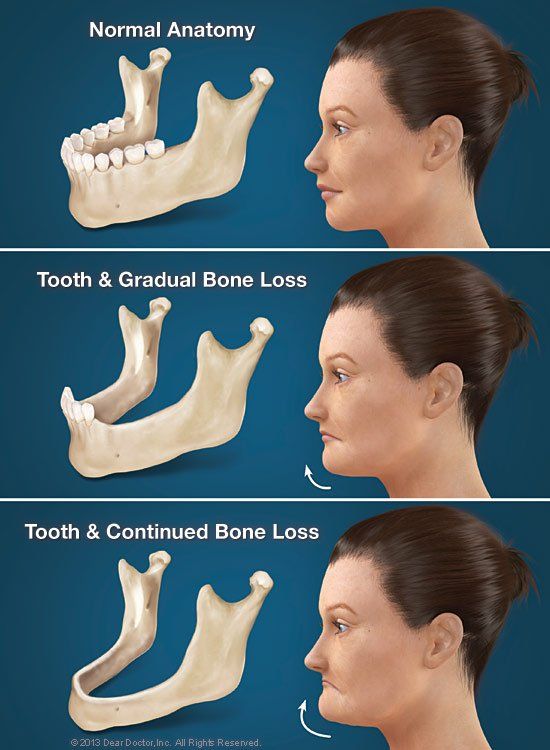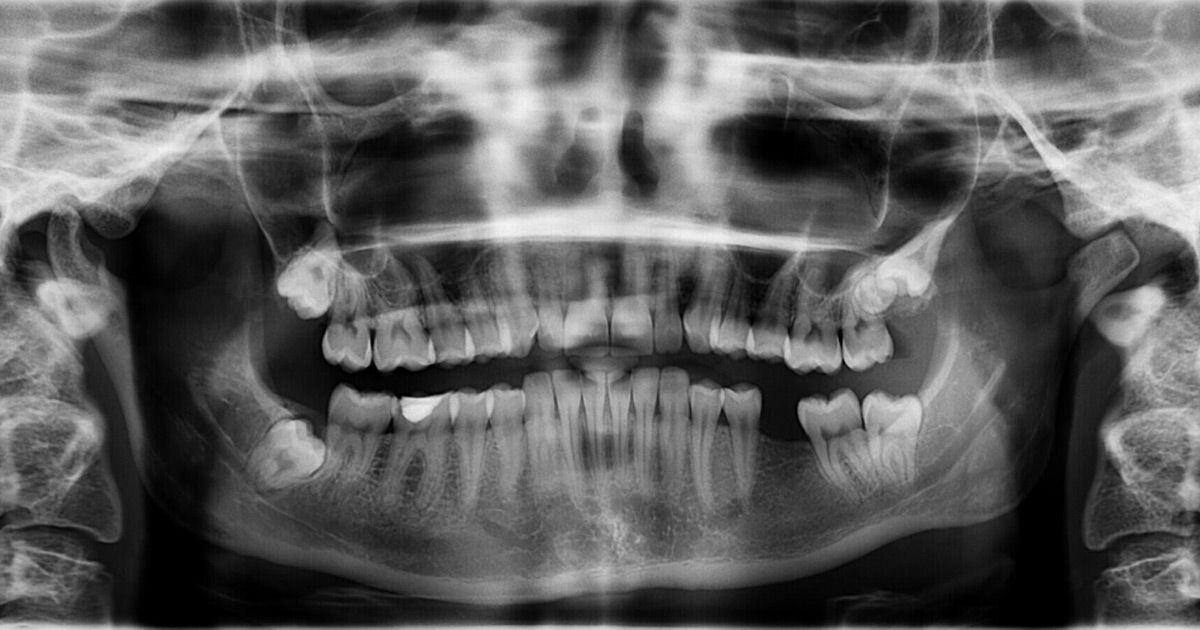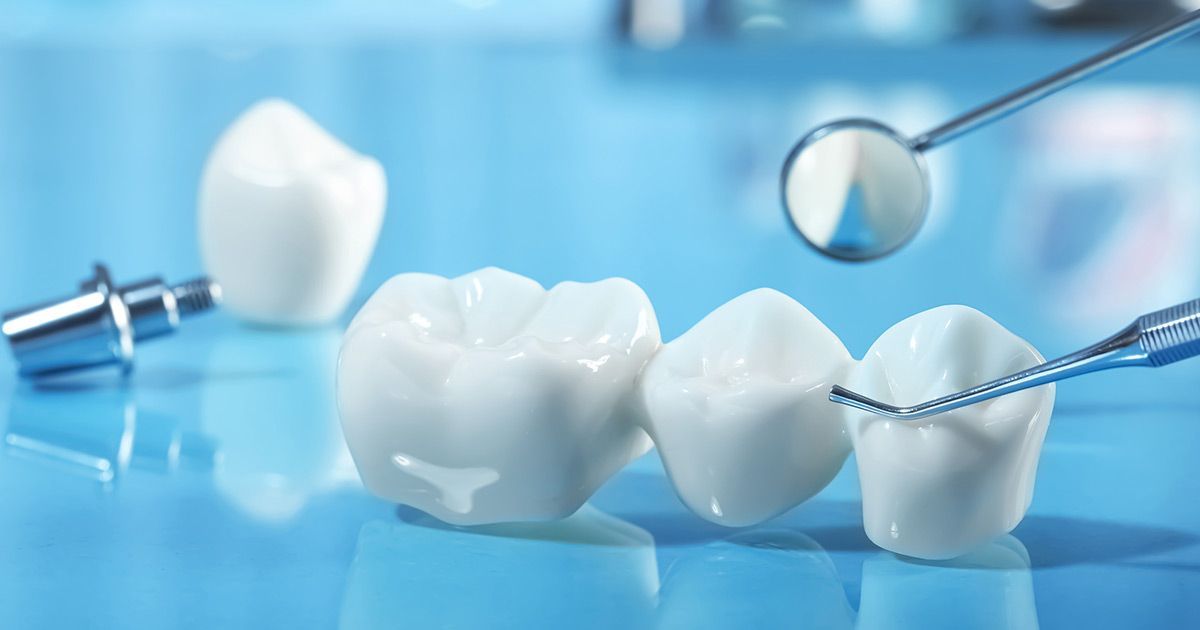If you have lost any of your teeth, you no doubt realize there are consequences to living without them: Your smile may not look the way you want it to; eating, speaking and intimacy may be more difficult; and your self-confidence may fade. Though serious, these are not the only impacts. There are hidden consequences of losing teeth that affect not only your appearance but also your health.
Importantly, a loss of jawbone inevitably follows tooth loss. Bone needs stimulation to maintain its form and density. In the case of the jawbone, that stimulation comes from the teeth, which make hundreds of fleeting contacts with each other throughout the day. The small stresses produced by these contacts are transmitted to the bone, prompting it to regenerate constantly. When a tooth is lost, the stimulation it provided disappears. In just the first year of tooth loss, there is a 25% decrease in bone width. This is followed over the next few years by an overall 4 millimeters decrease in height. If enough teeth are lost, and as bone loss continues, the distance from nose to chin can decrease and the lower third of the face partially collapses. With a lack of structural support, the lips sag; that's why toothless people often appear unhappy. Also, extreme loss of bone can make an individual more prone to jaw fractures.
You may also find that some of your remaining teeth actually shift into the spaces left open by your missing teeth. This in turn can cause additional bite problems and even jaw joint (TMJ) pain. Finally, compromised nutrition and poor general health can result if eating healthy foods like raw fruits and vegetables becomes too difficult without teeth.
Now here's the good news: Dental implants — the state-of-the-art tooth-replacement method preferred by dentists — can prevent all this.















